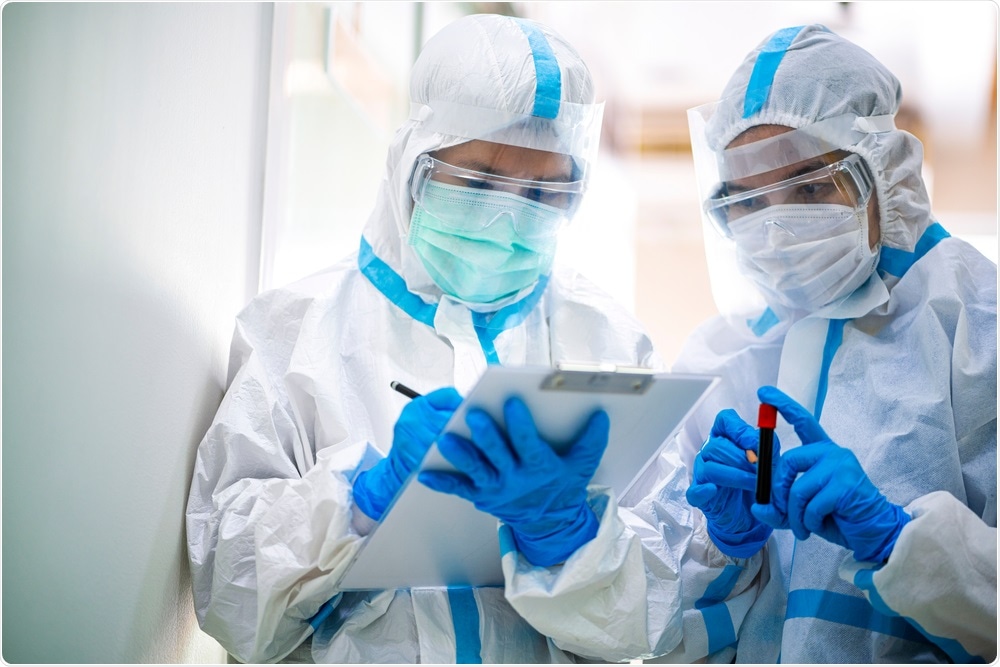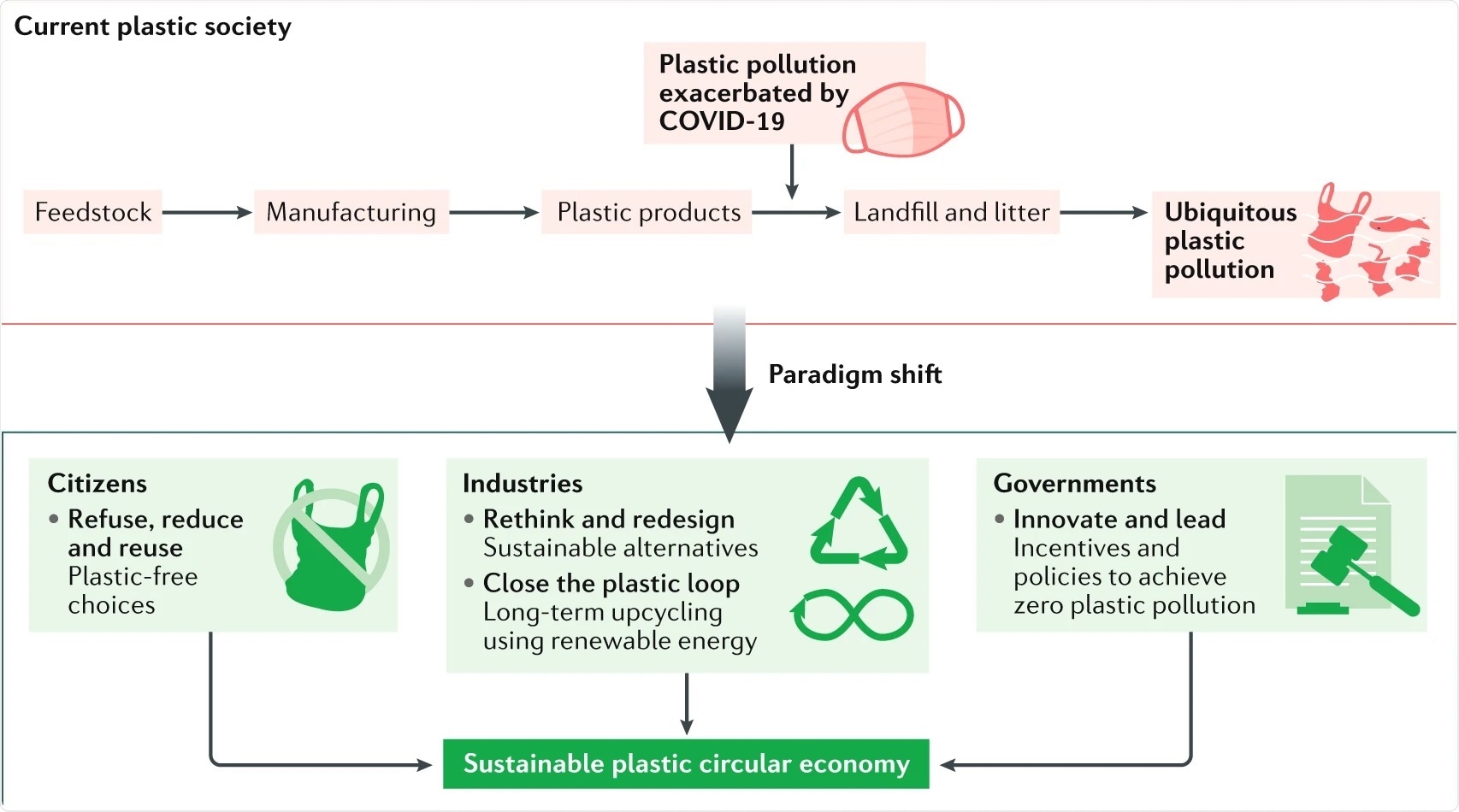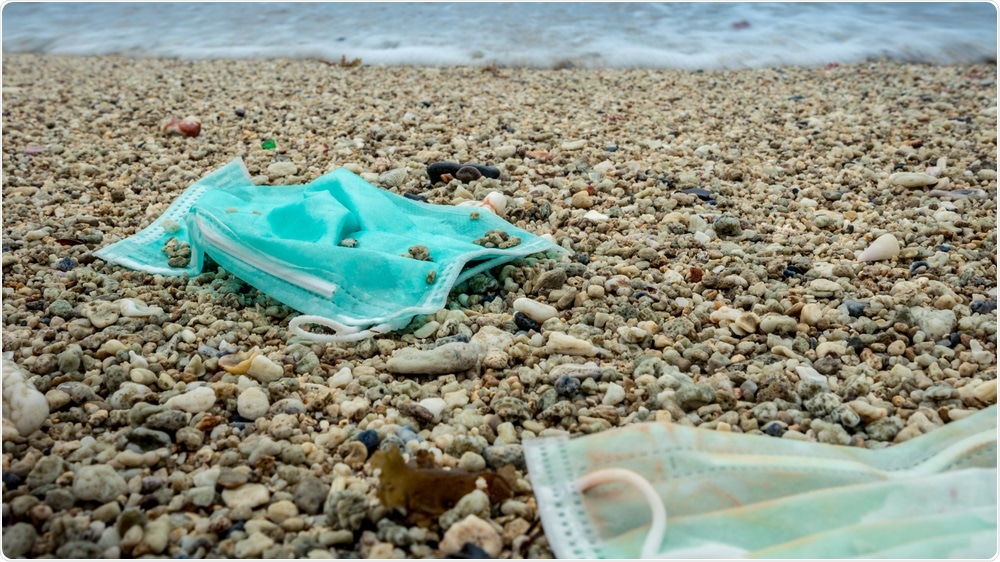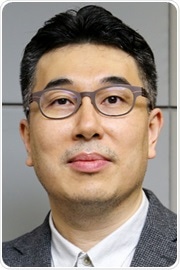Sustainable waste management is one of our research interests, and Prof Ok is chairing APRU sustainable waste management program (https://apru.org/our-work/pacific-rim-challenges/sustainable-waste-management/).
Since the COVID-19 outbreak, we firstly figured out that COVID-19 seriously caused unsustainable waste management. Therefore, we published one article (Letter) in Science (https://www.science.org/doi/10.1126/science.abc7778), which is titled “COVID-19's unsustainable waste management”.
Following our research interests and output, we keep focusing on the effect COVID-19 has on our ecosystem. Therefore, we wrote one more article titled “The COVID-19 pandemic necessitates a shift to a plastic circular economy”, which has just been released in Nature Reviews Earth & Environment (https://www.nature.com/articles/s43017-021-00223-2).
A lot of the attention given to the COVID-19 pandemic has focused on vaccination strategies and its variants. However, there are a lot of other problems created by the virus that are not highlighted, including plastic pollution. Why is it still important to spotlight some of these other impacts?
Up to now, it’s clear that the COVID-19 pandemic has been causing unexpected direct and indirect issues. Plastic products, especially PPE, have played significant roles in protecting humans from COVID-19.
However, inadequate plastic waste management resulted in an alarming accumulation of plastic in soil and aquatic ecosystems. For example, it is estimated that approximately 1.56 billion face masks (~5.66 tonnes (Mt) of plastic) ended up in the oceans in 2020. Therefore, it’s urgent and critical to spotlight sustainable plastic management for a circular economy.

Image Credit: People Image Studio/Shutterstock.com
What impact does plastic pollution have on our environment? How is this affecting climate change?
As mentioned in our article published in Nature Reviews Earth & Environment, approximately 400 Mt of plastic waste was produced globally in 2019. However, the estimated waste volume reached over 530 Mt in the first 7 months of the COVID-19 outbreak (December 2019–June 2020), suggesting plastic waste totals for 2020 would be at least double those of 2019. Moreover, large pieces of plastic waste, (including masks,) can break into microplastics (>100 nm and <5 mm) and nanoplastics (<100 nm).
The accidental ingestion of these micro-/nano-plastics by marine and freshwater organisms, alongside the unexpected accumulation in terrestrial plants and animals, and transport in the atmosphere as “plastic-rain” or “plastic-smog,” raise concerns for the safety of human food, drinking water, and breathable air. In addition, micro-/nano-plastics can serve as potential vectors for pathogens and toxic contaminants, leading to injury and death, with direct negative effects on biodiversity.
Plastic pollution has been labeled as a driver of environmental change. Production, transportation, and recycling could emit large amounts of greenhouse gases (i.e., CO2), clearly exhibiting a clear deviation from climate change mitigation.
Can you describe how you carried out your latest research into the effect COVID-19 has had on plastic pollution? What did you discover?
In our research, we collected data on plastic waste generation, analyzed the potential environmental risks to humans and the ecosystem, and finally discovered the challenges and perspectives based on concerted efforts on sustainable management of plastic waste.
As highlighted in our article published in Nature Reviews Earth & Environment, the COVID-19 pandemic is exacerbating plastic pollution. A shift in waste management practices is thus urgently needed to close the plastic loop, requiring governments, researchers, and industries to work towards intelligent design and sustainable upcycling.
What more can governments, researchers, and organizations be doing to help the world transition into a sustainable plastic economy?
As described in our article published in Nature Reviews Earth & Environment, a shift in waste management practices is thus urgently needed to close the plastic loop, requiring governments, researchers, and industries to work towards intelligent design and sustainable upcycling. Please kindly check the following in detail (together with the figure).
Technological breakthroughs are needed to create a closed-loop plastic society, starting at the design stage and up through disposal and environmental recovery. Biodegradable plastics are a promising future technology; however, full techno-economic and environmental footprint assessments for industrial-scale applications are needed before they are broadly implemented. Industries should provide exhaustive information on the biodegradable plastic stream flow to related researchers and policymakers so that appropriate techno-socio-economic analyses can be conducted to formulate policies.
Beyond biodegradable plastics, advanced and efficient catalytic conversion routes for plastic waste upcycling offer opportunities to enhance profitability from both environmental and resource-recovery viewpoints. These upcycling technologies should be encouraged and implemented by governments in their waste management programs.
Renewable energy, such as low- or medium-grade solar thermal power, should be used to upcycle plastic waste to obtain hydrogen fuel and produce clean carbon. With concerted efforts from industries, and financial and policy support from governments, these novel technologies could be upscaled for commercial applications alongside the push to achieve net-zero emissions in the coming decades.

Image Credit: https://www.nature.com/articles/s43017-021-00223-2).
How can consumers get involved to help reduce plastic pollution? Are there more sustainable options available to combat the disposable plastic products currently being used?
As displayed in the Figure (provided in Q6), consumers are encouraged to take action of “refuse-reduce-reuse”, making a plastic-free choice as much as possible.
Collaboration has been a huge advantage to recent advancements in the COVID-19 pandemic. How we can use this level of collaboration and apply it to the global fight against plastic pollution?
Many governments have implemented the single-use legislation and Extended producer responsibility (EPR), which is strongly supportive in achieving zero-plastic pollutions. Moreover, industries should provide exhaustive information on the stream flow of plastic products to related researchers and policymakers so that appropriate techno-socio-economic analyses can be conducted to formulate policies.
After performing the full techno-economic and environmental footprint assessments of plastic waste management, governments could provide incentives to related sections in achieving zero-plastic pollution. Finally, heightened consumer awareness, increased industry innovation, expanded government investment, and continued research can mitigate plastic burdens on the environment and develop a society guided by a circular economy.
Do you believe that with continued research efforts into the global plastic pollution problem, we will start to see global change?
Sure, we do. With concerted efforts from industries, and financial and policy support from governments, many novel technologies could be upscaled for commercial applications alongside the push to achieve net-zero emissions in the coming decades.

Image Credit: REC Stock Footage/Shutterstock.com
What are the next steps in your research into the environmental impact of COVID-19?
The plastic pollution has been magnified by COVID-19, but the pandemic is not the root cause of it – single-use plastics were already pervasive and disposed of improperly. Therefore, we will keep paying more attention to sustainable plastic management together with environmental impact assessment.
Our group is developing the novel upcycling route of plastic waste into value-added products (i.e., liquid fuels, engineered novel materials), achieving waste-to-energy/materials conversion in a sustainable manner.
In addition, we are evaluating the potential environmental impacts of commercial biodegradable plastics from the life cycle perspective. All these findings will be beneficial in achieving sustainable waste management and plastic pollution mitigation.
Where can readers find more information?
Reference:
Authors: Xiangzhou Yuan1, Xiaonan Wang2,3, Binoy Sarkar4, and Yong Sik Ok1,5,6
Title of Original Paper: The COVID-19 pandemic necessitates a shift to a plastic circular economy
Journal: Nature Reviews Earth & Environment
DOI: 10.1038/s43017-021-00223-2
Affiliations: 1Korea Biochar Research Center, APRU Sustainable Waste Management Program & Division of Environmental Science and Ecological Engineering, Korea University 2Department of Chemical Engineering, Tsinghua University 3Department of Chemical and Biomolecular Engineering, National University of Singapore 4Lancaster Environment Centre, Lancaster University 5Sustainable Minerals Institute, The University of Queensland 6Department of Soil and Groundwater Management, University of Wuppertal
About Professor Yong Sik Ok
Yong Sik Ok is a Full Professor and global research director at Korea University in Seoul, Korea. His academic background covers waste management, the bioavailability of emerging contaminants, and bioenergy and value-added products (such as biochar).
Further, Professor Ok has experience in fundamental soil science and the remediation of various contaminants in soils and sediments. In collaboration with graduate students and colleagues, Professor Ok has published over 600 research papers, 88 of which have been ranked as Web of Science ESI's top papers since 2009. In 2019, he became the first Korean to be selected as an HCR in the field of Environment and Ecology.
He currently serves as Director of the Sustainable Waste Management Program for the Association of Pacific Rim Universities (APRU) and Co-President of the International ESG Association. Moreover, he has served as chairman of numerous major conferences such as Engineering Sustainable Development 2019, organized by the APRU and the Institute for Sustainability of the American Institute of Chemical Engineers (AIChE). Prof. Ok will host the first Nature conference among South Korean universities in Seoul in 2021 on waste management and valorization for a sustainable future.